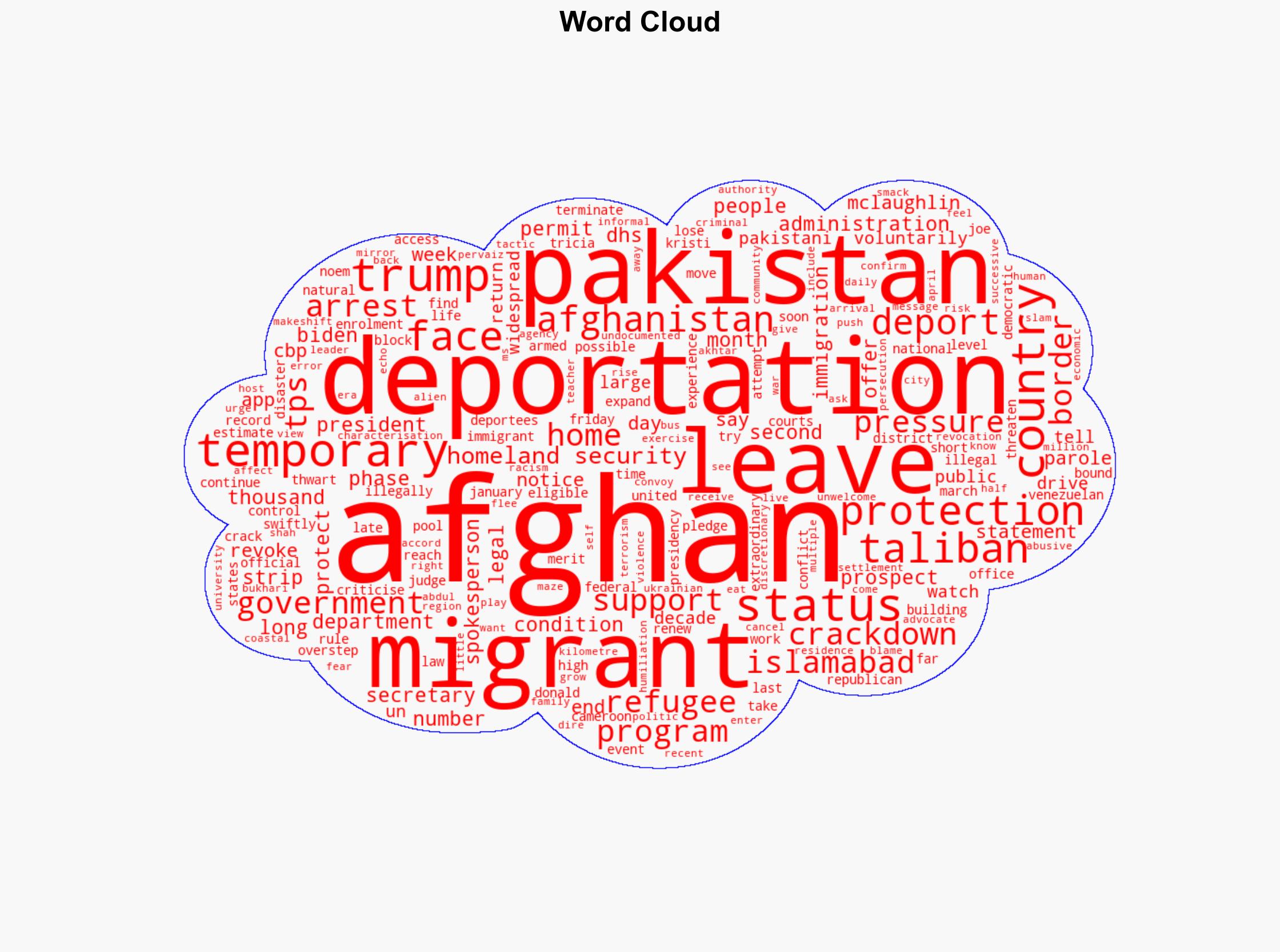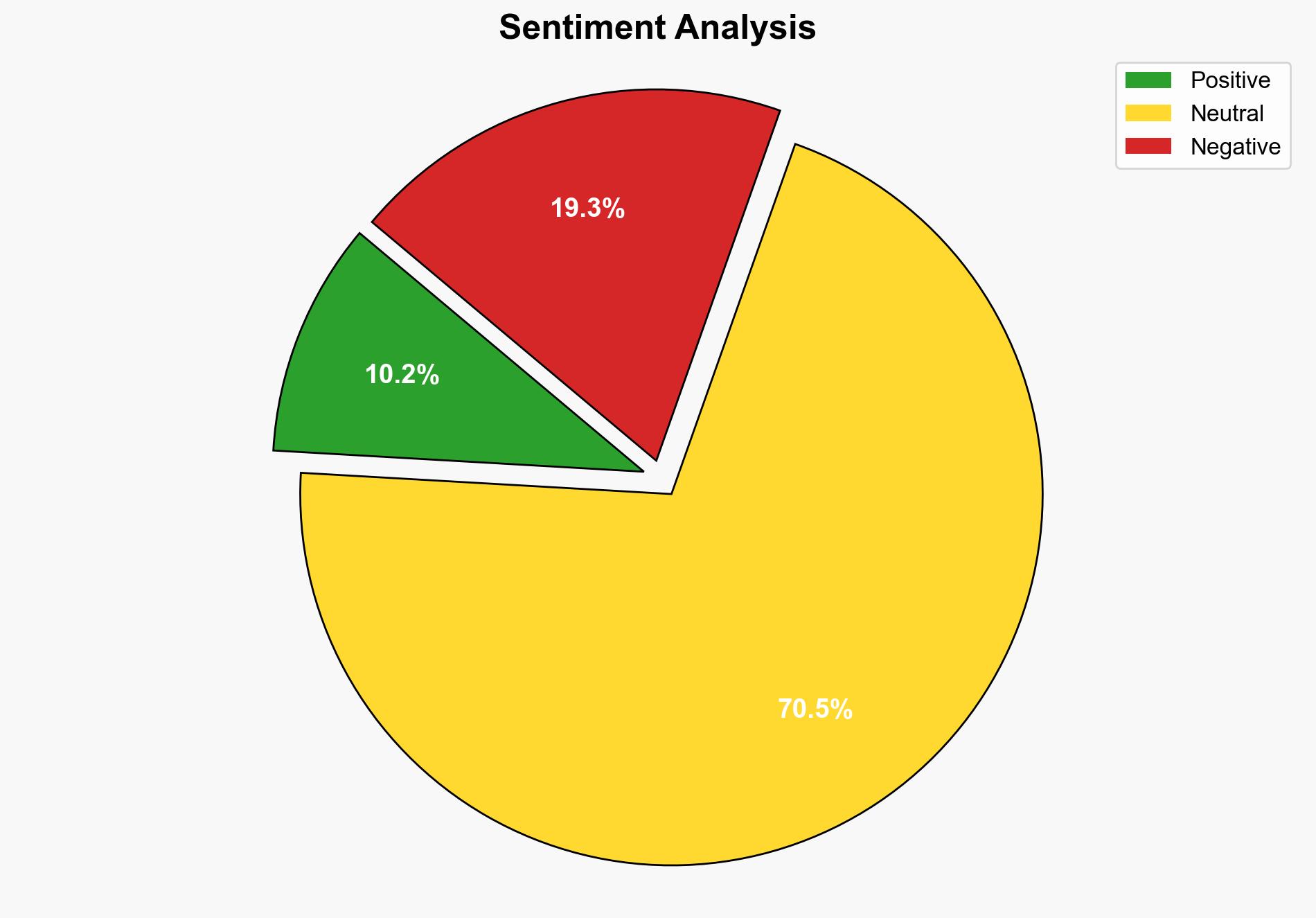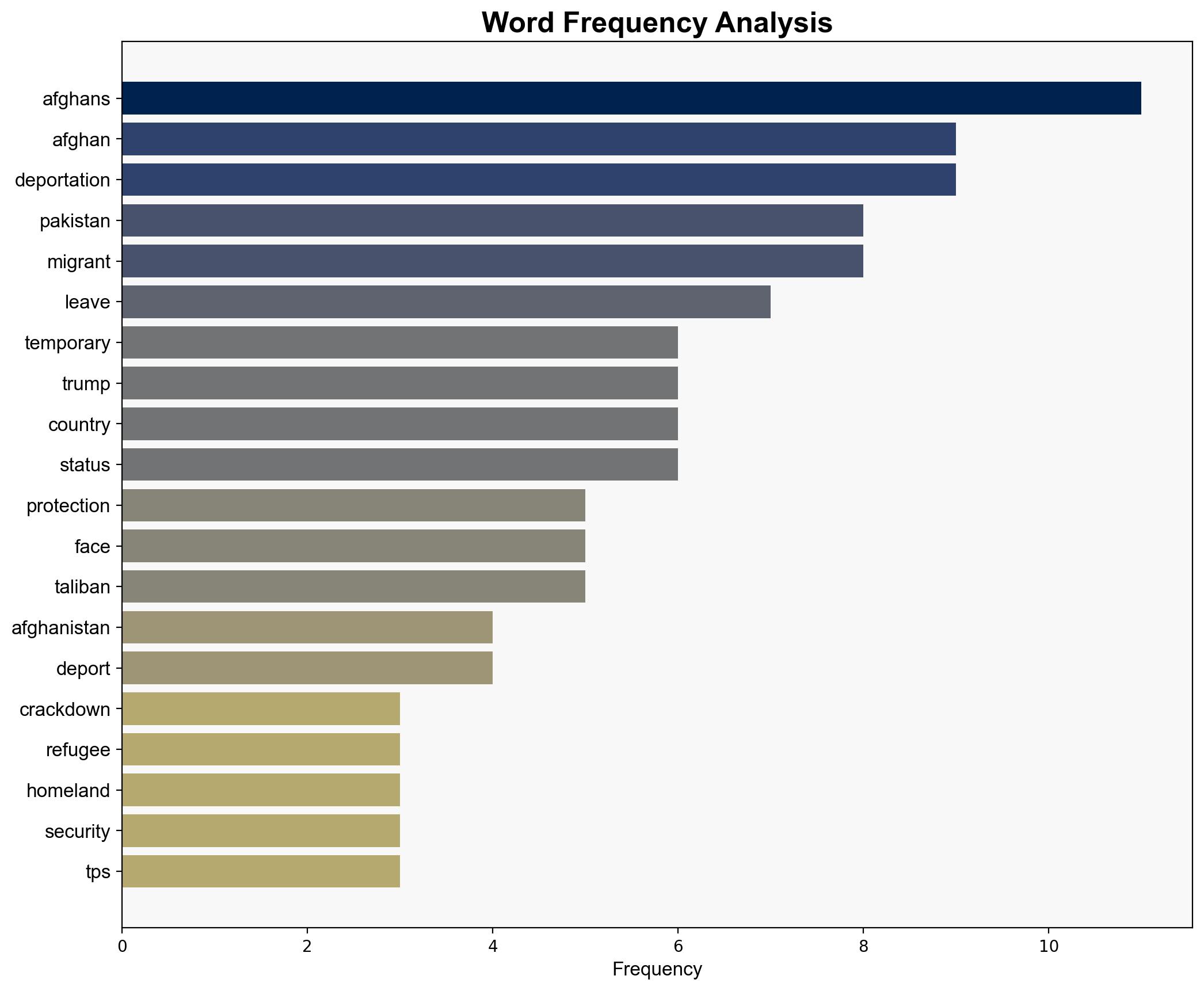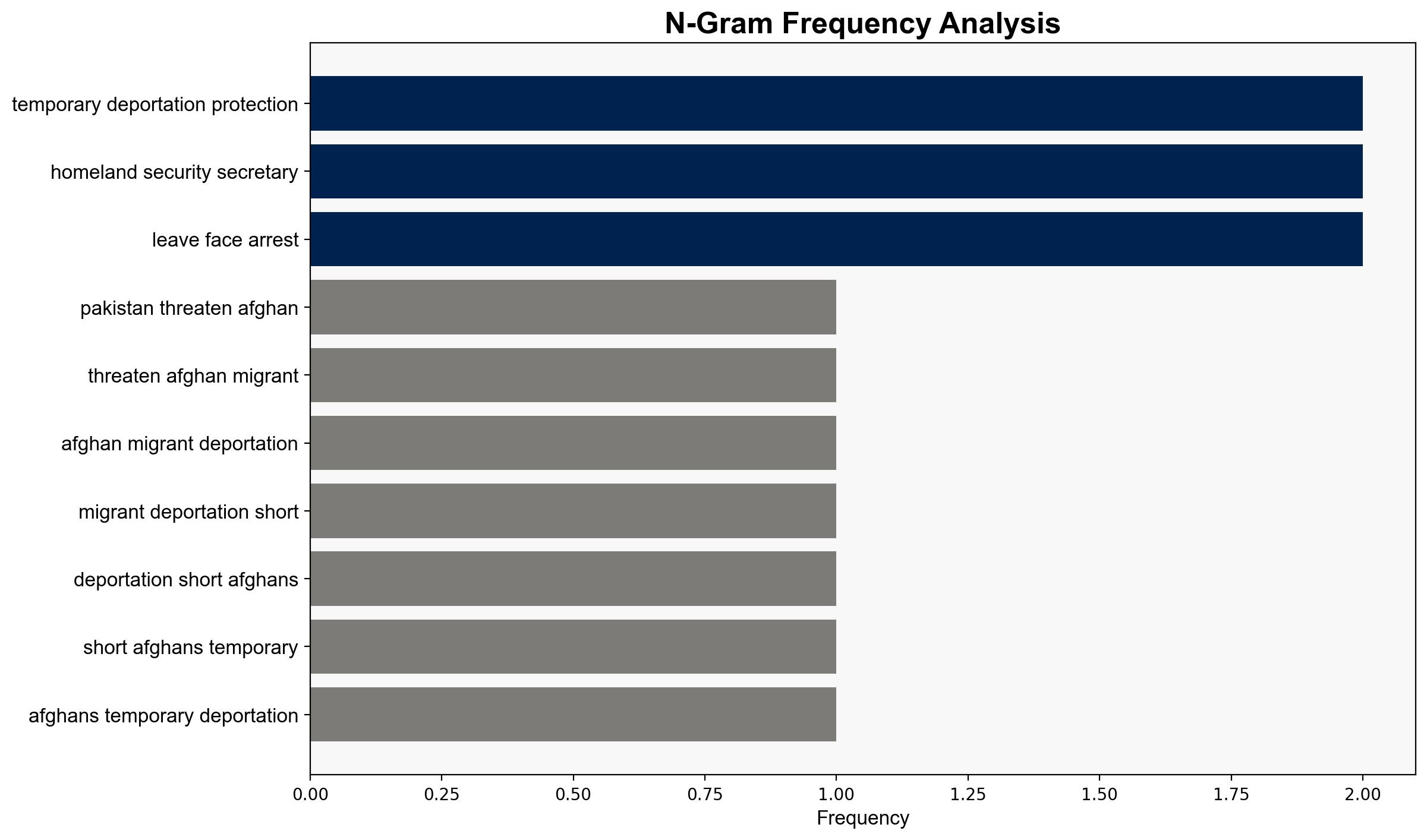US and Pakistan threaten Afghan migrants with deportation – ABC News (AU)
Published on: 2025-04-12
Intelligence Report: US and Pakistan threaten Afghan migrants with deportation – ABC News (AU)
1. BLUF (Bottom Line Up Front)
The United States and Pakistan are intensifying their efforts to deport Afghan migrants, potentially forcing thousands to return to Taliban-controlled Afghanistan. The US has terminated Temporary Protected Status (TPS) for approximately 14,600 Afghans, while Pakistan is pressing Afghans to leave or face arrest. These actions could exacerbate humanitarian concerns and destabilize regional security.
2. Detailed Analysis
The following structured analytic techniques have been applied for this analysis:
General Analysis
The US administration’s decision to end TPS for Afghans is part of a broader immigration crackdown. This move aligns with previous attempts to limit TPS during the 2017-2021 period. The revocation of temporary “parole” for migrants entering through the CBP One app further underscores this trend. In Pakistan, the government’s directive for Afghans to leave adds pressure on an already vulnerable population. Both countries’ actions reflect a hardening stance on immigration, potentially leading to increased humanitarian challenges and regional instability.
3. Implications and Strategic Risks
The deportation of Afghan migrants poses several risks:
- Humanitarian Impact: Returning migrants to Afghanistan could lead to significant human rights concerns, given the current Taliban regime.
- Regional Stability: Mass deportations may destabilize neighboring regions, increasing the burden on countries already hosting large Afghan populations.
- Security Concerns: The potential for increased refugee flows could strain international relations and security frameworks.
4. Recommendations and Outlook
Recommendations:
- Engage in diplomatic efforts to address the humanitarian needs of Afghan migrants and seek international cooperation for refugee resettlement.
- Implement policy adjustments to provide temporary relief and protection for vulnerable migrant populations.
- Enhance monitoring and reporting mechanisms to ensure compliance with international human rights standards.
Outlook:
Best-case scenario: International cooperation leads to a coordinated response, mitigating humanitarian impacts and stabilizing the region.
Worst-case scenario: Mass deportations exacerbate regional instability, leading to increased human rights violations and security threats.
Most likely scenario: Continued pressure on Afghan migrants with limited international intervention, resulting in gradual deportations and regional tensions.
5. Key Individuals and Entities
The report mentions significant individuals such as Donald Trump, Kristi Noem, and Tricia McLaughlin. The actions of the US Department of Homeland Security and the Pakistani government are central to the developments discussed.





